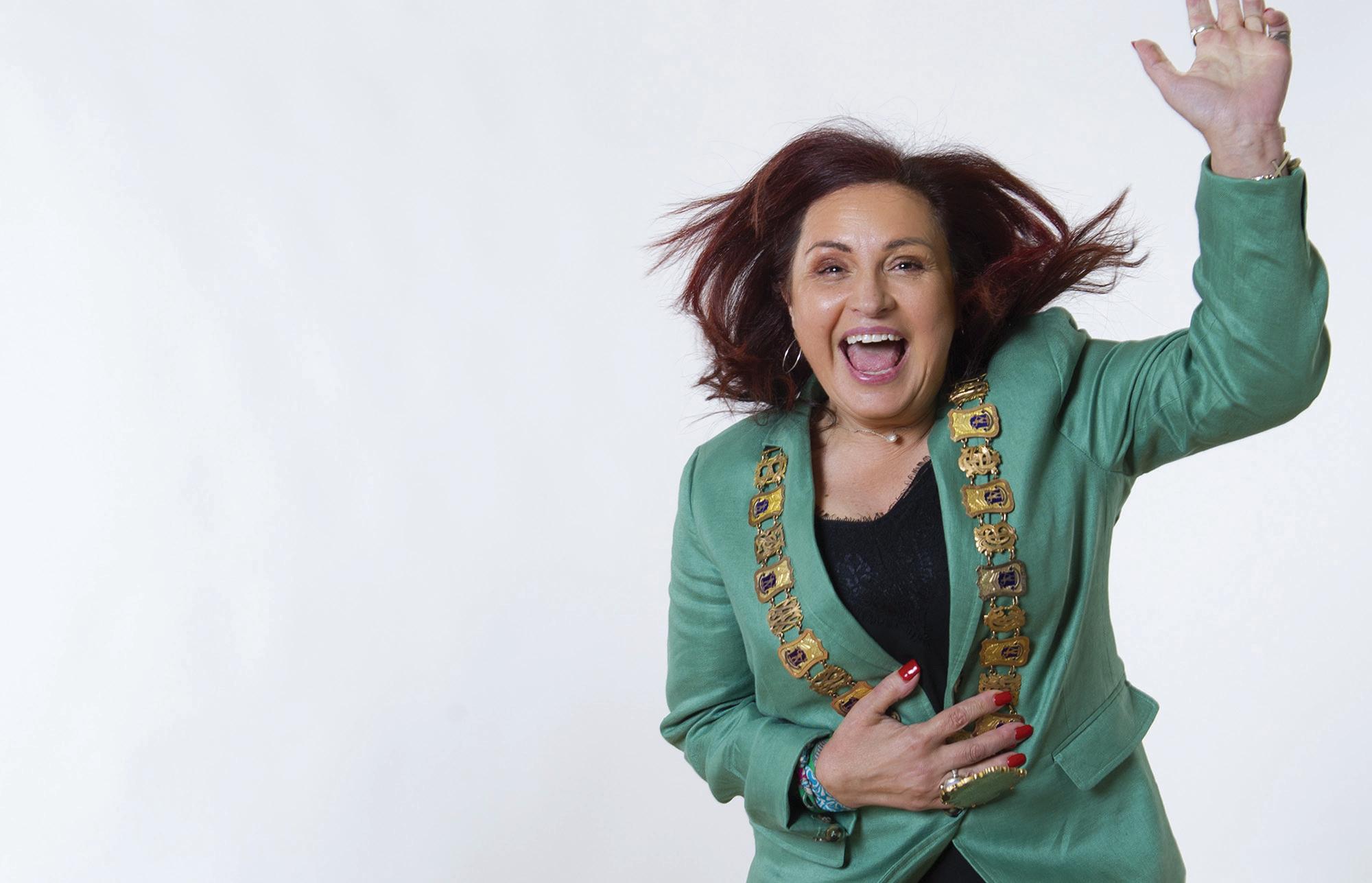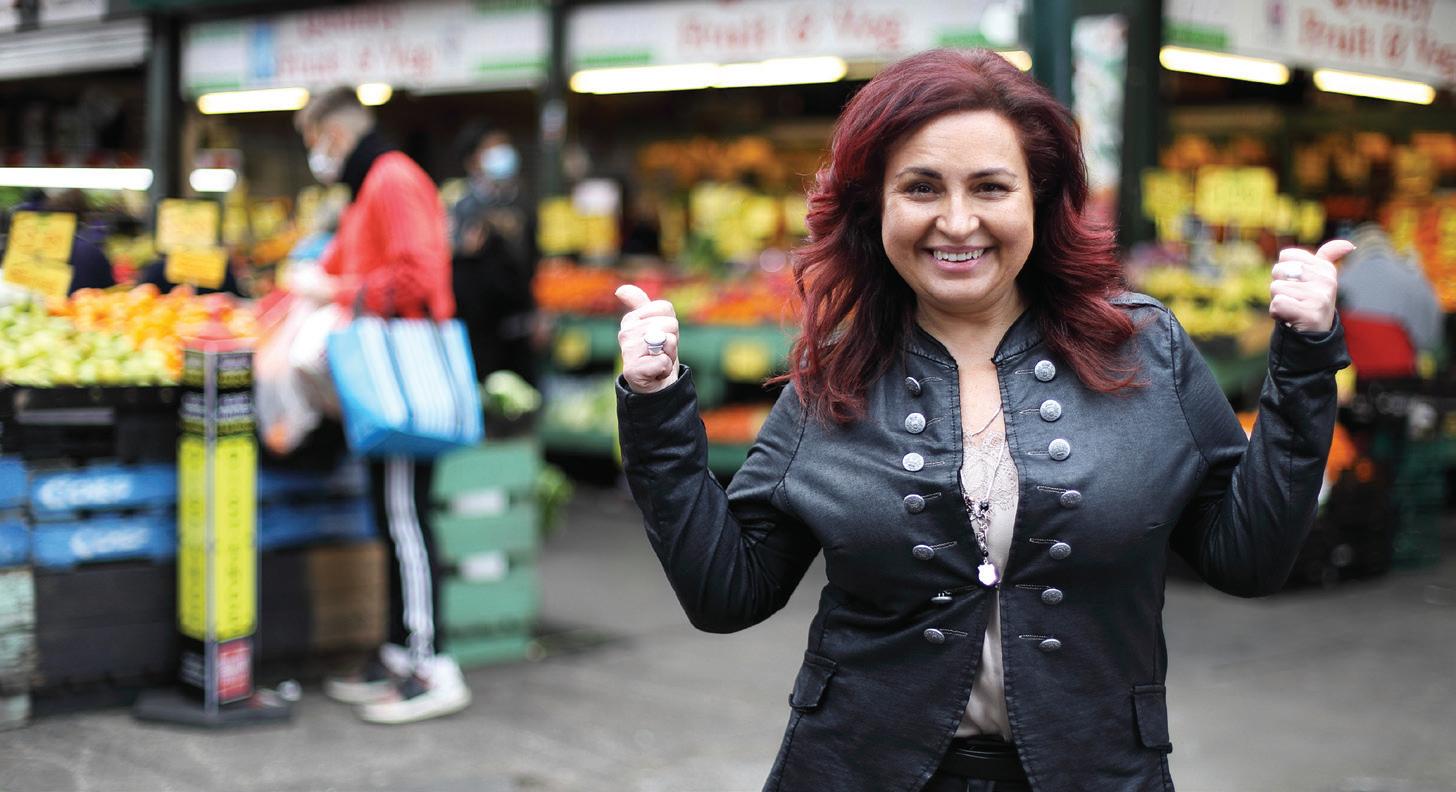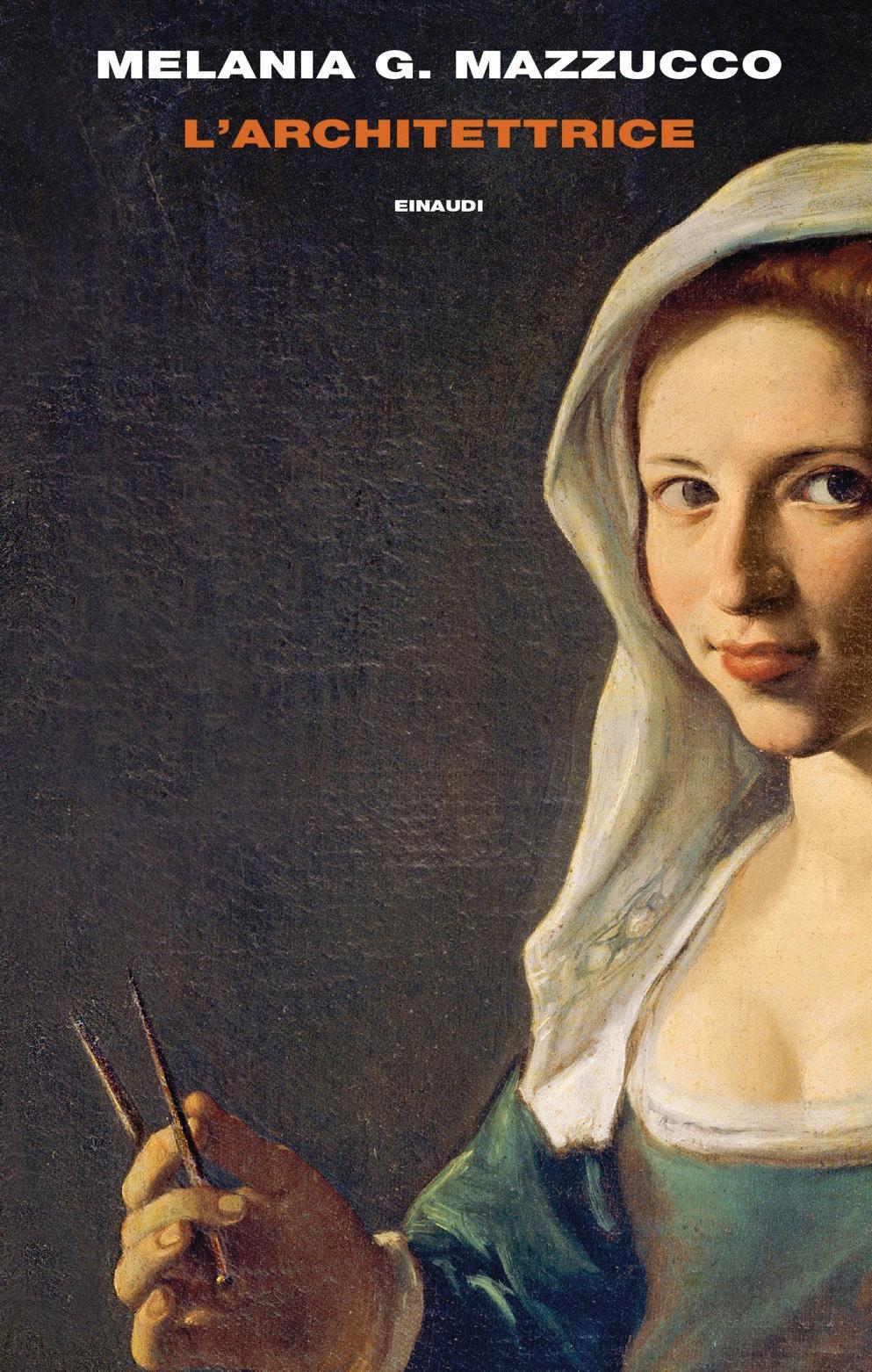
3 minute read
Politics with Purpose
LINA MESSINA talks about technology, microeconomies, and making our ancestors proud
by Hayley J. Egan
Advertisement
The City of Darebin has a new mayor, and it has to be said that she embodies the Italian stereotype. Passionate, determined, and a little bit fierce, Lina Messina was not going to sit back and do nothing when she heard that the Preston Market was going to close down. «I rang a friend who was a local politician at the time, saying that it just can’t close down,» she says. «And he said to me, “Well, what are you going to do about it?”» Daughter of Sicilian migrants, Messina grew up in Darebin, and she is passionate about her corner of Melbourne and the memories it holds. Of particular significance to her and many others, is the hive of shopping activity in the heart of Preston. «The Preston Market reflects so many multicultural groups. It is an inter-generational space that holds the stories of the communities who have come here with hopes and
20
dreams,» she says. «So, I ran for council, and we opposed development.» Lina Messina decided to run for council to fight for the Market, but discovered that her plan for Darebin was bigger, and four years was not enough time to get the work done. Especially in the midst of a pandemic, when she felt her community needed her most. When the local traders in Darebin started suffering because of the lockdowns in Victoria last year, Lina Messina was one of the first to propose extending the footprint of hospitality businesses to accommodate more customers safely. Her role, as she sees it, is to listen to the community. «The responsibility of a politician is to spend money wisely, on the things that the community actually wants, and to listen to everyone, not just the loudest voices,» she says. It’s not just the implementation of policy that generates change, but also the behaviour of a community in difficult times, such as shifts in shopping behaviours during lockdowns. According to Lina, this too is something on which local councils need to sit up and take note. «The community understands the importance of a microeconomy. People need to support local businesses, because time and time again, it’s been shown that small businesses generate more jobs than big businesses like Woolworths and Coles. A fairer future is in a local economy.» Messina is also concerned about the impacts of the pandemic on a social and cultural level. «I’m worried about what it means socially for someone to greet you in the community,» she says. «Traditionally Italians are very physical and very warm. Do we change that? Has COVID-19 changed that?» She feels the social losses we’ve endured during the year are not to be underestimated, and having become a grandmother during the lockdown, she understands the sacrifices that people have made during the pandemic. «FaceTime was all we had,» she says, and recounts having to isolate before her daughter gave birth, and the agonising wait to meet her grandson. The experience has her reflecting on the digital divide between the generations, noting that parts of the elderly community are disengaged with modern technology, making them vulnerable to social isolation in times of physical distancing. «It’s something we as a community need to address,» she says. «The elderly need to be in contact with their friends, with their families, with their grandchildren.» Of her own grandson, Messina says, «He’s the love of my life. When you become a Nonna, your heart just grows.» The experience has made her reflect on her own Nonna, and the heartache she must have felt after her mother’s migration, and after becoming a grandmother to a child that would grew up in another continent. «My mother landed here in Darebin. How could she have known that one day her daughter would become Mayor? I’d like to have that conversation with my Nonna. I’d like to tell her that all her sacrifices were worth it.»











